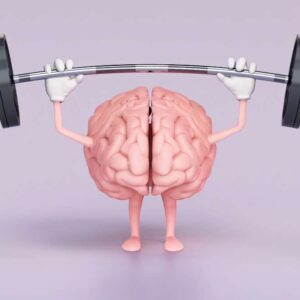
Overlooked Health Measurement Could SAVE Your Life
You likely know how much you weigh. After all, if you forget, your doctor will surely remind you on your next visit.
You may even have a scale to keep track of it at home. And the same is true for your blood pressure and maybe even your blood sugar.
But few of us pay much attention to ANOTHER vital number. Or even know what a normal one would be.
And we should. After all, it could help you spot a developing health problem.
In some cases, it could even SAVE your life…
We should all start paying more attention to our heart rate.
I’ve had a few patients come in complaining of what they believed to be a racing heart.
One patient had purchased a watch that counted her heart rate. And another could feel his heart beating very quickly.
When the woman looked at her new watch, she became concerned when it went above 100 beats per minute.
Before she had the watch, she’d never noticed how fast her heart beat sometimes when she was moving around. But she didn’t need to worry.
For most folks, a heart rate BELOW 60 beats per minute or OVER 100 when they’re at rest is worrisome.
Elite athletes may have a much lower rate (but this is rare). And remember, if you’re taking certain medications, such as beta-blockers, your heart rate may be slower, too.
On the other hand, it’s NOT uncommon for the heart to beat at a rate of 120 or more times per minute whenever we’re moving around.
What my patient with the watch was noticing is very normal.
The man who felt that his heart was racing faced a different issue. His heart was actually skipping beats.
It’s a condition called atrial fibrillation (a-fib), an irregular heartbeat. A-fib typically feels like a flutter in the chest but can be perceived as a fast heart rate.
Now, to be clear, I don’t want you to start worrying about your heart rate. But it IS a good idea to start treating it like any other number you use to evaluate your health, such as blood pressure or weight.
If you take your blood pressure at home, most machines also provide heart rate. And the finger pulse-ox machines some of us picked up during the pandemic measure it, too. Either is an easy way to keep track of it.
Keep in mind that rates do vary from person to person. Plus, things like emotions, body size, body position, age, and even the temperature can also cause your rate to vary.
So, your best bet is to talk with your doctor about your target heart rate. And after that, look for consistency.
If your rate is running very high while at rest, discussing it with your doctor is a good idea.
And you should always get it checked out if you feel like your heart is beating quickly when you’re sitting still and not doing anything.
Keeping an eye on your heart rate is just one more way to help you detect developing hidden health issues BEFORE they can get out of hand.
P.S. Dodge heart palpitations with this POTENT, all-natural a-fib fix.
Written By Dr. Scott Olson, ND
Nearly 25 years ago, failed mainstream medical treatments left Dr. Olson in constant pain – and his health in ruins. And that’s when he did something REVOLUTIONARY. He began his career in medicine – and dedicated his life to uncovering the true, underlying causes of disease.
Through his innovative medical practices in Tennessee and Colorado, Dr. Olson has helped cure countless seniors from across America of arthritis… heart disease… diabetes… and even cancer. All without risky prescription drugs or painful surgeries.
View More Free Articles
BEAT Stubborn Leg Swelling Without Dangerous Diuretics
“I need help with edema.” —Swollen Hi Swollen, When patients complain of edema—fluid retention that causes feet, ankles, and legs to swell—I explain that, while conventional medicine immediately prescribes diuretic drugs, nature offers us effective solutions we can try first. I’ll share those in just a moment, but first, let’s take a quick look at...
Mental Health Linked to 30% FASTER Aging [6-Step FIX]
Your mind and body are more connected than you might realize—and a groundbreaking new study proves just how profound that connection really is. In fact, it’s this mind-body link that helps explain why battling depression can put you on the fast track to physical decline. Depression is the most common mental health condition worldwide. We’ve...
The Air You Breathe Is Silently Stealing Your Memory
You already know that air pollution damages your lungs. Chances are you’ve heard it can also harm your heart. And I bet you won’t be surprised when I tell you it claims millions of lives annually. But now, alarming new research suggests polluted air might also damage your brain. This study found that long-term exposure...
Get Intermittent Fasting Benefits Without Going Hungry
Intermittent fasting, which involves cycling between eating and fasting periods, is effective. There’s plenty of evidence for that. It’s not just weight loss, either. Intermittent fasting has significant benefits for metabolic health. However, many people find fasting difficult to stick to—and others can’t do it at all due to medical issues—so they miss out on...
Just Diagnosed with Hypertension? —6 Things to Do Next
You’ve been diagnosed with high blood pressure—now what? First, take a breath. You’re not alone—over 30 percent of adults worldwide have hypertension. That makes it one of the most common health issues… and a top cause of preventable deaths. The good news is that, unlike some conditions that can leave you feeling helpless, high blood...
Brain Games Are USELESS—Do These 5 Things Instead
I’ve seen a lot of lists lately claiming to have the secrets that keep your brain from turning into mush as you age. They typically advise activities such as doing crosswords, learning Spanish, or taking up the accordion. Challenging your mind with new learning experiences is definitely a great way to keep your brain engaged...
This $5 Fix REVERSES Cellular Aging in Just 6 Months
You take your vitamins, eat your vegetables, and feel healthy—so your nutrition is covered… right? Well, new research suggests that even health-conscious older adults may be missing crucial nutrients that keep their cells functioning like those of younger people. The trouble is that as we age, our bodies become less efficient at absorbing nutrients from...
Mailbag: Doctors Get Bone Health WRONG—Here's What Really Works
“Thank you so much for answering this. With millions of women who are seniors over 70 facing a diagnosis of osteoporosis, this is my question. What can we do naturally to help improve our bone density, especially in the spine lumber 1 and 2? Also, how do we help improve bone density in the femur...
Critical Brain Nutrient Missing In 9 Out of 10 American Diets
You’ve probably heard plenty about brain-boosting omega-3s, antioxidants, and B vitamins. But there’s another nutrient that’s just as critical for your cognitive health. However, it’s been flying under the radar… until now. Mounting evidence suggests this overlooked compound could be key to protecting your brain and enhancing memory. It may even reduce your risk of...
"Miracle Berry" Supercharges Your Microbiome
Happy Father’s Day to all the dads and granddads who’ve shared their wisdom, strength, and love through the years. Thank you for teaching us that the best medicine is laughter, love, and a father’s caring heart. Want to upgrade your health but don’t want complicated diets or expensive supplements? Science just revealed a delicious way...








